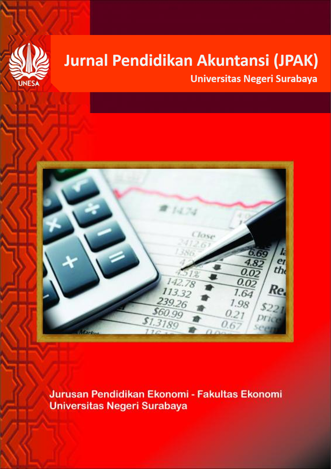Pengembangan E-LKPD Berbasis Higher Order Thinking Skills Pada Mata Pelajaran Akuntansi Keuangan Sebagai Upaya Meningkatkan Berpikir Kritis Peserta Didik
DOI:
https://doi.org/10.26740/jpak.v10n1.p80-93Keywords:
E-LKPD, HOTS; financial accounting; critical thinkingAbstract
21st century learning has learning demands that lead to HOTS, character education, literacy skills, and 4C (Critical, Creative, Communicative and Collaborative) that can be achieved through the development of HOTS-based E-LKPD combined with indicators of critical thinking skills. Based on the pre-introduction conducted by researchers, it was found that the competency test questions and description questions that have been used in learning are still narrative and prioritize cognitive aspects so that they are not yet relevant to the characteristics of HOTS. This research goal is to develop E-LKPD teaching materials primarily based on higher order thinking skills in financial accounting topics and improve students' critical thinking skills. The research subject consisted of 20 students of class XI Accounting at SMKN 6 Surabaya. The research development Model is 4D (define, design, development, disseminate) without disseminate stage. The research instruments are observation sheet, interview sheet, review sheet, validation sheet, evaluation sheet, and student response questionnaire sheet. The results of Development Research obtained the average results of expert validation of HOTS-based e-LKPD of 87.3% showed that the interpretation is very feasible to use. N-Gain score test obtained an average score of 0.62 with moderate criteria on the results of the critical thinking skills test. Learners ' response to E-LKPD based on HOTS get results of 96.6% with very good criteria. So that the use of HOTS-based E-LKPD in learning has been declared valid and very feasible because it can improve critical thinking skills.
Downloads
Downloads
Published
How to Cite
Issue
Section
License
Authors who publish with this journal agree to the following terms:
- Authors retain copyright and grant the journal right of first publication with the work simultaneously licensed under a Creative Commons Attribution License that allows others to share the work with an acknowledgement of the work's authorship and initial publication in this journal.
- Authors are able to enter into separate, additional contractual arrangements for the non-exclusive distribution of the journal's published version of the work (e.g., post it to an institutional repository or publish it in a book), with an acknowledgement of its initial publication in this journal.
- Authors are permitted and encouraged to post their work online (e.g., in institutional repositories or on their website) prior to and during the submission process, as it can lead to productive exchanges, as well as earlier and greater citation of published work (See The Effect of Open Access).

Jurnal Pendidikan Akuntansi (JPAK) is licensed under a Creative Commons Attribution-NonCommercial 4.0 International License.
 Abstract views: 1428
,
Abstract views: 1428
, PDF Downloads: 1288
PDF Downloads: 1288



